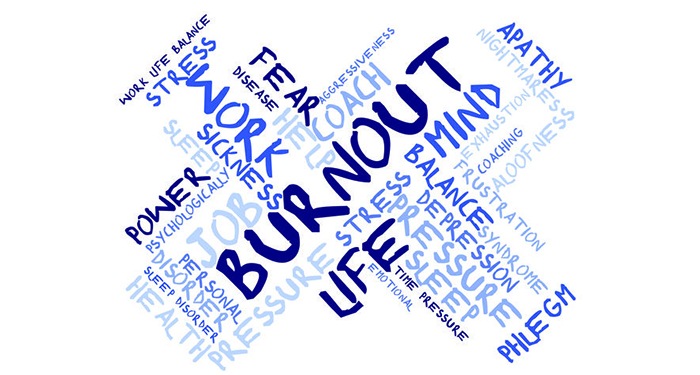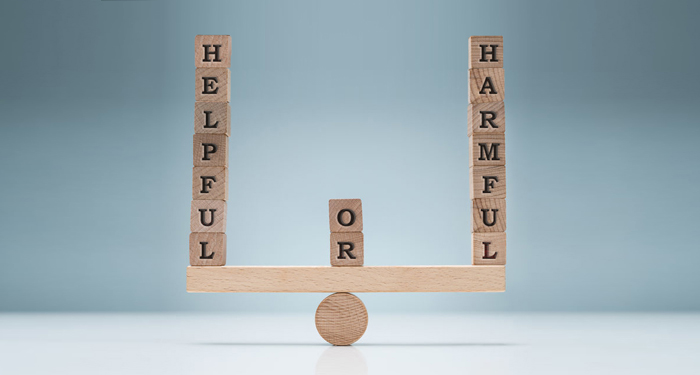
“It’s not how you come into a crisis …
it’s how you come out and move on.”
I ask myself…
“Is this (behavior, action, relationship) helping or harming me?” [Read more…]

“It’s not how you come into a crisis …
it’s how you come out and move on.”
“Is this (behavior, action, relationship) helping or harming me?” [Read more…]
 I was watching the news the other night. The interviewer was asking a diverse group of individuals how they envisioned the future now pandemic restrictions have been lifted. People said a variety of things ranging from excitement to get back to the office and their colleagues, loving the fact they were continuing to work from home, happy to reduce Zoom time and so on. All very predictable. What caught my attention was a young man who was asked, “What about getting back to normal?” [Read more…]
I was watching the news the other night. The interviewer was asking a diverse group of individuals how they envisioned the future now pandemic restrictions have been lifted. People said a variety of things ranging from excitement to get back to the office and their colleagues, loving the fact they were continuing to work from home, happy to reduce Zoom time and so on. All very predictable. What caught my attention was a young man who was asked, “What about getting back to normal?” [Read more…]
 A longtime executive coaching client sent me a Washington Post article, “Your Ability to Focus May Be Limited to 4 or 5 Hours a Day. Here’s How to Make the Most of Them.” When C and I first met, I asked him what kind of work he did. “I think about the internet fifteen years from now,” he quickly and confidently replied. As I got to know him better it became clear his description was not idle bragging. He had in fact been a major player in the conceptualization and launching of the internet. What stayed with me all these years was the verb he used in his description — think. [Read more…]
A longtime executive coaching client sent me a Washington Post article, “Your Ability to Focus May Be Limited to 4 or 5 Hours a Day. Here’s How to Make the Most of Them.” When C and I first met, I asked him what kind of work he did. “I think about the internet fifteen years from now,” he quickly and confidently replied. As I got to know him better it became clear his description was not idle bragging. He had in fact been a major player in the conceptualization and launching of the internet. What stayed with me all these years was the verb he used in his description — think. [Read more…]
 The concept of a beginner’s mind comes from Zen Buddhism. The word is Shoshin. “It refers to having an attitude of openness, eagerness, and lack of preconceptions when studying a subject, even when studying at an advanced level, just as a beginner would.” Shunryū Suzuki, author of “Zen Mind, Beginner’s Mind,” speaks of abandoning expectations, judgements, and prejudices, and allowing possibilities an expert mind would not be able to comprehend due to the clutter in their brain. A beginner’s mind is as if you are seeing your world and thoughts for the first time though a clean lens. [Read more…]
The concept of a beginner’s mind comes from Zen Buddhism. The word is Shoshin. “It refers to having an attitude of openness, eagerness, and lack of preconceptions when studying a subject, even when studying at an advanced level, just as a beginner would.” Shunryū Suzuki, author of “Zen Mind, Beginner’s Mind,” speaks of abandoning expectations, judgements, and prejudices, and allowing possibilities an expert mind would not be able to comprehend due to the clutter in their brain. A beginner’s mind is as if you are seeing your world and thoughts for the first time though a clean lens. [Read more…]
 When first studying to become an executive coach, I was curious to hear what leaders in the field were talking about, encouraging, even hawking. The area that rang true for me was the idea of practicing extreme self-care. Simply stated, it is the belief you can’t help others if you aren’t or haven’t taken care of yourself. [Read more…]
When first studying to become an executive coach, I was curious to hear what leaders in the field were talking about, encouraging, even hawking. The area that rang true for me was the idea of practicing extreme self-care. Simply stated, it is the belief you can’t help others if you aren’t or haven’t taken care of yourself. [Read more…]
 Many of us thought working from home would shield us from the slings and arrows of a toxic work environment. However, research tells us we were wrong. [Read more…]
Many of us thought working from home would shield us from the slings and arrows of a toxic work environment. However, research tells us we were wrong. [Read more…]

GLINT, a research and innovation organization whose mission is “to help people become happier and more successful at work,” published its “State of the Manager 2021” survey results. The most disturbing piece of data was the fact burnout in the workplace rose 78% from Q1 to Q4 in 2020. I am sure no one is surprised and believe things have not gotten better. How many are still concerned? Are you?
 I have hired hundreds of people in my careers. The process differed depending on the level I was looking to fill. In the retail field if the applicant could work weekends and holidays — and their hygiene was acceptable — they were in for that part-time, entry level job. When looking to fill an executive position, the process took more skills, time, and effort. [Read more…]
I have hired hundreds of people in my careers. The process differed depending on the level I was looking to fill. In the retail field if the applicant could work weekends and holidays — and their hygiene was acceptable — they were in for that part-time, entry level job. When looking to fill an executive position, the process took more skills, time, and effort. [Read more…]
 One reason people come to executive coaching is to sort out questions, situations, or inner conflicts surrounding their work, job, and career. We put our heads together to zero in on the real issues, think of alternatives, and weigh the risks and benefits, actions, and decisions. [Read more…]
One reason people come to executive coaching is to sort out questions, situations, or inner conflicts surrounding their work, job, and career. We put our heads together to zero in on the real issues, think of alternatives, and weigh the risks and benefits, actions, and decisions. [Read more…]
 BJ Fogg is a behavior scientist and the founder and director of the Behavior Design Lab at Stanford University. He is the author of the New York Times bestseller “Tiny Habits: The Small Changes That Change Everything” and Forbes 21 Books to Read In 2021 selection. [Read more…]
BJ Fogg is a behavior scientist and the founder and director of the Behavior Design Lab at Stanford University. He is the author of the New York Times bestseller “Tiny Habits: The Small Changes That Change Everything” and Forbes 21 Books to Read In 2021 selection. [Read more…]